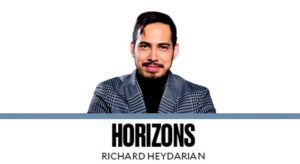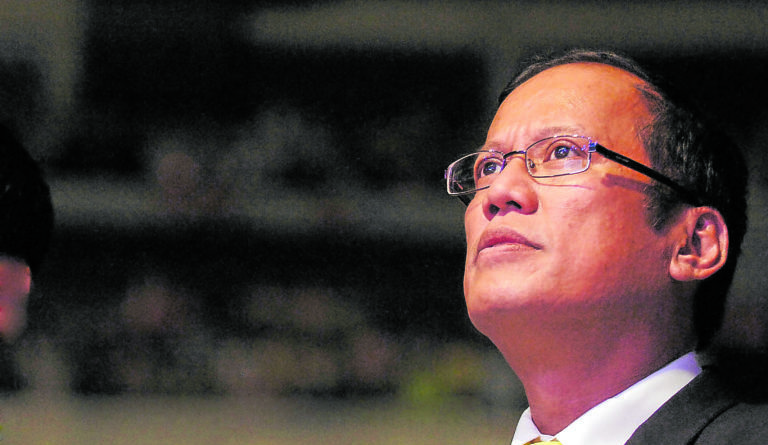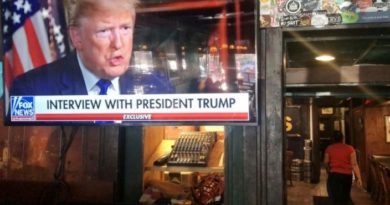OP ED COLUMNISTS: HORIZONS- Aquino: The great transitional leader

Politically, I came of age during the ascent of the late president Benigno S. Aquino III. Though studying politics at the university following an earlier stint in the medical sciences, I was staunchly apolitical in my social outlook.
Overall, my primary interest was international affairs, namely politics among nations rather than within. I was passionately interested in the rise and fall of empires, yet remained stubbornly aloof toward my immediate political environment. It didn’t help that student activism in my university, once a bastion of genuine radicalism and progressive politics, now seemed comically anachronistic with all the shibboleths and tired slogans.
.
Then came the meteoric rise of Barack Hussein Obama, whose historic election upended my understanding of politics. My heart gradually opened up to political hope, as I gently shed my skeptical bent toward contemporary democracy. If Americans, with their tragic history of civil wars and slavery, could do it, why can’t we? After all, our democracy was patterned after theirs, I thought to myself. It was precisely in the afterglow of Obama’s “Yes We Can” campaign that I decided to become an actively engaged citizen in my own country.
The 2010 elections happened to be the first time I became old enough to vote. Idealistic and determined, I didn’t mind waiting for hours to register and, come election day, cast my vote.
To be sure, I had my reservations with all the candidates, including their motherhood statements and routine sloganeering. And yet, Aquino’s emphatic victory, on the back of a moral crusade against corruption, raised hopes of transformative politics, more than three decades after the fall of the Marcos dictatorship.
That year, I also began to work as a policy consultant at the Philippine legislature—my first direct confrontation with, to use the term of great sociologist Max Weber, the “iron cage” of bureaucratic governance.
In simplest terms, the Aquino presidency marked an epic collision between sonorous idealism and the raw reality of a broken political system. Three years into his term, the World Bank announced that the perennial “sick man of Asia” was now the region’s “rising tiger” economy. Yet, we lacked the necessary policies to ensure that rapid economic growth was not gobbled up by the 40 richest families, who took home 76 percent of the country’s newly created growth. And despite the massive increase in our fiscal resources, the snail’s pace of infrastructure development enraged countless residents grappling with the worst traffic congestion on earth.
True, Aquino believed in a new form of righteous polities, which I have described as “moralpolitik.” Still, the bulk of the ruling coalition was packed with the same coterie of political dynasties, including then mayor of Davao City Rodrigo Duterte.
.
There was an admirable attempt at fighting corruption, but the targets were overwhelmingly members of the opposition. And, above all, the botched Mamasapano counterterror operation in 2015 painfully revealed the limits of vertical accountability under an avowedly “Daang Matuwid” (righteous path) administration.
I was arguably the first analyst to describe the 2016 elections as a “protest vote,” setting the tone for my book the following year, “The Rise of Duterte: A Populist Revolt Against Elite Democracy.”
In retrospect, however, it’s clear that six years was never enough for any potentially transformative leader, although too long for any destructive and incompetent one. Lest we forget, it was Aquino who oversaw a sustained period of macrocosmic stabilization, dared to take China to international court over our sovereign rights in the West Philippine Sea, and finalized a historic peace deal that paved the way for an autonomous Bangsamoro in Muslim Mindanao.
It was also Aquino who thrust the fight against corruption into the heart of our national politics. He was undoubtedly a good transitional leader who left us a more prosperous, stable, and hopeful nation than the one he inherited.
Back in 2009, Corazon “Cory” Aquino’s passing triggered her then low-profile son’s ascent to the presidency. So will his untimely passing a year ahead of next year’s elections boost the chances for a return of progressive polities?
Perhaps former presidential candidate Manuel “Mar” Roxas was a tad too early when he said, “The best is yet to come.”












